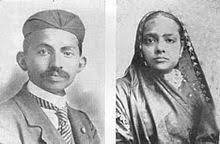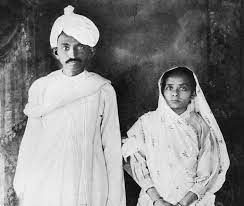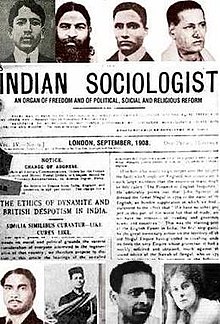
Bankim Chandra Chatterjee – An Author/Reformer
In this thread/post, I’m deliberating the characters of the women in his novels and in the end leave the choice to readers for judgement.
Was he Communal/Patriarchal as claimed by WOKE’s?
Bankim Chandra’s early literary efforts


In this thread/post, I’m deliberating the characters of the women in his novels and in the end leave the choice to readers for judgement.
Was he Communal/Patriarchal as claimed by WOKE’s?
Bankim Chandra’s early literary efforts

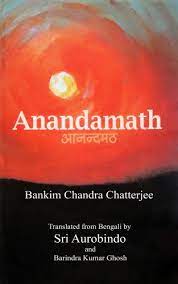
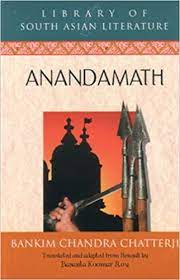
were produced in verse. In 1853, he brought out two volumes of poems entitled Lalita and Manasi, but after this Bankimchandra discarded poetry for fiction. Under the influence of the contemporary craze for writing in English, his first novel, Rajmohan’s Wife (1864)
Bishabriksha
Bishabriksha
(1873) is his first social novel which centres on the plight of widows.
Krishnakanter Uil (1878) is a realistic social novel and revolves around a widow’s socially inhibited love and its grim tragedy.
Bankim wrote in the preface to Krishnakanter Uil that, “novels are expositions


Krishnakanter Uil (1878) is a realistic social novel and revolves around a widow’s socially inhibited love and its grim tragedy.
Bankim wrote in the preface to Krishnakanter Uil that, “novels are expositions
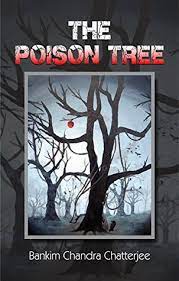

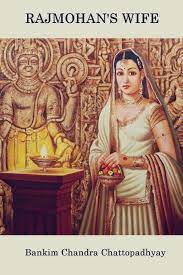
of difficult problems of human life.”
Both Bishabriksha and Krishnakanter Uil make widow remarriage the central problem of the story.
Anandmath (1882) is a soul-stirring novel, wherein Bankimchandra introduced his celebrated song ‘Bande Mataram’. Here, the insurrection of the
Both Bishabriksha and Krishnakanter Uil make widow remarriage the central problem of the story.
Anandmath (1882) is a soul-stirring novel, wherein Bankimchandra introduced his celebrated song ‘Bande Mataram’. Here, the insurrection of the
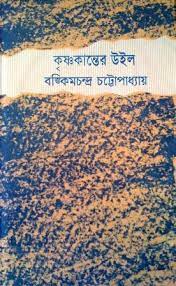
Sannyasis that erupted in North Bengal in 1773 is given an interesting politico-religious twist. It also projects a bitter dichotomy of the patriarchal perception of women: the nation is regarded as the Mother while women are forbidden to crusade for her cause.
Debi Chaudhurani
Debi Chaudhurani
(1884) is romantic, appealing and a glorious testimony to the valour and prowess of unfettered womanhood. In Debi Chaudhrani, Bankimchandra has made a woman character comment upon the sanctity of the orthodox Hindu marriage. He also illuminates the dignity of wives who perceived
their most important duty in the service & devotion to their husbands.
Kazi Abdul Wadud, prominent Bengali critic has rightly remarked: The modern critic of Bankimchandra finds no basis for the charge against him of anti-Muslim spite. For one thing, he has created some beautiful
Kazi Abdul Wadud, prominent Bengali critic has rightly remarked: The modern critic of Bankimchandra finds no basis for the charge against him of anti-Muslim spite. For one thing, he has created some beautiful
Muslim characters; for another, as a socialist, he championed the cause of the have-nots against the haves, irrespective of race or creed.
His women characters assert his deep understanding of the human mind and his remarkable power of delineation. All his novels including the
His women characters assert his deep understanding of the human mind and his remarkable power of delineation. All his novels including the
historical novels have the theme of 90love as their principal human interest, which easily lends the women characters a certain level of prominence. Bankim can deftly narrate a story centring on a domestic problem even while narrating a historical romance. His language is simple
and supple, and his descriptions, realistic. His sense of the comic runs throughout his narratives. His characters all belong to the landed gentry or the educated middle class, but almost all his women characters are beautiful, intelligent and memorable as artistic creations.
His natural inclination as a writer was towards portraying a grand, majestic and mysterious history. His imagination had a sweeping power, tempered by his strong, ethical views and conservatism.
Through his women characters like a chaste wife, an accomplice to a crime,

Through his women characters like a chaste wife, an accomplice to a crime,
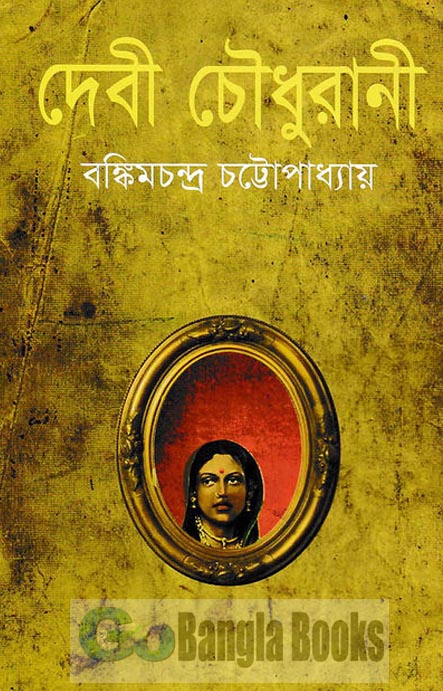
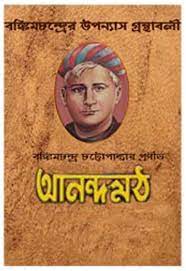
an adulterous wife, and an ambitious widow are characters that have suffered through pitiable plights, have faced injustice and have accused the men who have been responsible for it. Such women assert themselves as individuals independent of men and occasionally uphold themselves
as human beings who are superior in ability to men, as seen in the character of Prafulla in Debi Chaudhurani.
In depicting such women who rise in defiance against accepted social codes, he sternly prosecutes the culprits who have detracted from the humane codes of morality.
In depicting such women who rise in defiance against accepted social codes, he sternly prosecutes the culprits who have detracted from the humane codes of morality.
On one hand, Bankimchandra moves beyond the codes of practice & belief acknowledged by Hindu texts and on the other he is critical of the fact that the society perceives the advances of progressive women as whimsical aberrations. This is particularly noticed in Debi Chaudhurani
for Prafulla and in Durgeshnandini for Bimala.
Bankimchandra’s objection to the impact of domesticity on a woman’s inner self and his radical representation of the powerful, assertive and self-sufficient woman are more influential than the reformist agendas of his time.
He does
Bankimchandra’s objection to the impact of domesticity on a woman’s inner self and his radical representation of the powerful, assertive and self-sufficient woman are more influential than the reformist agendas of his time.
He does
not argue for the drastic structural changes in women’s immediate social predicament. In these novels, the sense of guilt towards women has been dissipated as reformable aspects of women’s social existence or as concrete perspectives of normal human existence. It is dealt with,
instead, in individual tragic situations which result in mental insanity in psychotic situations rather than in social ones. The novels tend to throw open-ended conflicting points of view.
Bankimchandra’s essay “Prachina O Nabina” (The Old-Fashioned and the Modern Woman)
Bankimchandra’s essay “Prachina O Nabina” (The Old-Fashioned and the Modern Woman)
expresses the view that under the pretext of improving the condition of women, men actually confine them to their own standards and manipulate to accommodate them according to their changed views and expectations.
Bankim asserts that if India was to progress, she would have to
Bankim asserts that if India was to progress, she would have to
change “her archaic beliefs and outmoded social institutions”.
At the centre of Bankimchandra’s explorations through contemporary and historical times lay the vexed questions that liberal reformist critiques of Hindu conjugality had fore-grounded. Bankim posed them with clarity
At the centre of Bankimchandra’s explorations through contemporary and historical times lay the vexed questions that liberal reformist critiques of Hindu conjugality had fore-grounded. Bankim posed them with clarity
and pushed them with an audacity that took them well beyond the modest & respectable confines of compassionate marriage framework which had been as much as the reformers had hoped for. His concern was to counterpose different patterns of female sexuality and the ways of loving
one another, to project them out within contrasting domestic and extra-domestic conventions, to question the limits of accepted codes and transgressive behaviour, and to test given models of male sexuality and love as well as suggest alternative possibilities… He articulated
wide-ranging configurations of female transgressions within extra-marital relationships and contrasted the woman’s moral emotional dilemmas with socially sanctioned codes.
In his sociological essay “Samya”, Bankimchandra offers a breathtaking and penetrating analysis of
In his sociological essay “Samya”, Bankimchandra offers a breathtaking and penetrating analysis of
inequality in India's caste system, gender inequality and that of the establishment of the supreme truth of equality between men and women. He bitterly condemns inequality in Hindu society making gender oppression his focus of attack, since sexual hypocrisy is most blatant. It
permits male polygamy while demanding from woman chastity, seclusion and an ascetic widowhood, and forbidding widow remarriage. He laments that the degree to which women are enslaved by men here cannot be found anywhere else. He refutes the 134argument that unequal rights are
grounded in unequal capabilities, since capabilities are not naturally unequal but have been thus created by unequal conditions. Bankimchandra dismisses the need for a woman’s absolute chastity on the grounds that
(Thread Ends In Another 3 Tweets)
(Thread Ends In Another 3 Tweets)
Bankimchandra dismisses the need for a woman’s absolute chastity on the grounds that it probably does nothing to improve her life but affords a feeling of security to that of a man. Thus, he probably proposes an equal distribution of rights and responsibilities between men and
women. He emphasises that our society does not recognize that if capabilities differ, it should lead to unequal rights. Advocating the absolute value of liberal rights he appeals for women’s education, economic independence by earning and fair property inheritance rights
freedom from seclusion through fair division of sexual and domestic labour and denounces the demand for “absolute and unconditional chastity” from women, because men are not expected to conform to those standards.
#VANDEMATARAM

#VANDEMATARAM
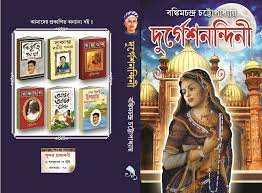
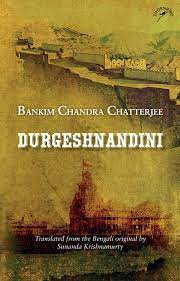
• • •
Missing some Tweet in this thread? You can try to
force a refresh



